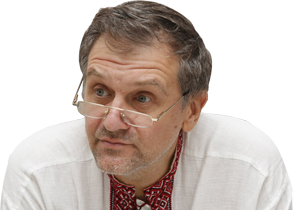First of all, speaking of the Polish law on the Institute of National Remembrance, it should be noted that Ukrainians themselves started calling the new legislation the way playing in the Kremlin’s interests – people tend to brand it "the law of the Bandera ideology". That is, we are disseminating the message that discredits Ukraine.
In fact, the legislation refers not only to Bandera and his followers. This is a law on the Institute of National Remembrance of Poland, which in general governs the formation of historical memory in this country and the coverage of relevant events. That is, the law applies not only to Ukrainians. Besides, the law sparked a rather tough reaction from both Brussels, United States, and Israel, which also evidences in favor of the fact that the legislation applies not only to Ukraine.
The law applies not only to Ukrainians. Besides, the law sparked a rather tough reaction from both Brussels, United States, and Israel
The new law broadly reflects the approaches of the Law and Justice (PiC) ruling party to the policy of national memory. And this is also in line with the PiC’s general course. Recently, Poland adopted a number of laws that drew criticism, including on the part of the European Union (for example, the law on the functioning of the Polish judiciary). That is, we are seeing the tilt to the right of the Polish political spectrum and PiC’s attempts to establish a monopoly on truth.
Speaking about this law, we must also consider its separate provisions. With some of its wording I can actually agree. For example, I agree with the fact that the words "Polish death camps" should not be used. After all, those were indeed German "death camps" in Poland. This would be the right wording.
But, on the other hand, there are things that raise concern in both Israel, the United States, and EU. In particular, the dissatisfaction is due to the fact that this law speaks of the need to lift all responsibility of the Poles for acts of anti-Semitism that took place in Poland. And although the policy of "ultimate solution to the Jewish issue" was a German policy in its nature but there were collaborators in all the occupied countries. Even today we sometimes see incidents when people deny the Holocaust ...
If we talk about issues concerning Ukraine, we see an attempt to politicize a historical issue. And this, of course, hampers the development of Ukrainian-Polish relations.
How should Ukraine respond? On the one hand, Kyiv should respond to Poland’s move but, on the other hand, Kyiv must be careful in choosing the way to react. That’s because we must not be likened to the other side. After all, Ukraine and Poland, one way or another, will remain strategic partners: politicians come and go, while national interests remain. And the national interests of both Poland and Ukraine dictate the need for cooperation.
If we talk about issues concerning Ukraine, we see an attempt to politicize a historical issue. And this, of course, hampers development of Ukrainian-Polish relations
Of course, it is very difficult to cooperate today with the government led by the PiC. Moreover, the atmosphere of the "right" populism has spread beyond the "PICs", to the representatives of other parties, especially when it comes to national feelings. After all, opponents of the PIC policy on historical memory may be accused of not taking care of the image of Poland and "not seeking the truth" about the history of Poland.
The situation has become very complicated for President Duda in regard to the passing of this law. That’s because in any case – whether he signs it off or refuses to do so – his move will entail serious consequences for him.
But I would like to draw attention to this: there is an ongoing dialog between Poroshenko and Duda, albeit a rather difficult one. Therefore, Ukraine needs to seek points of contact where we could continue to cooperate with Poland, even despite the fact that the Poles make such statements and the Polish parliament takes such steps...
Oleksiy Haran is a Research Director at the Democratic Initiatives Foundation, PhD in Political Sciences at the National University "Kyiv-Mohyla Academy"


